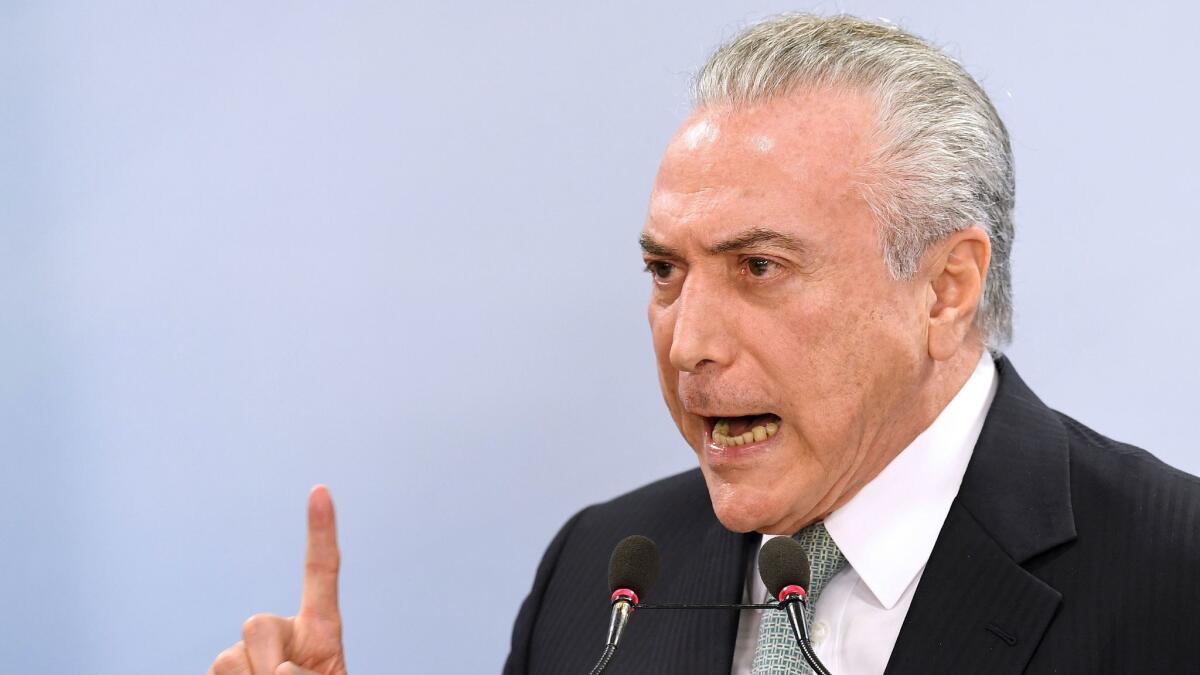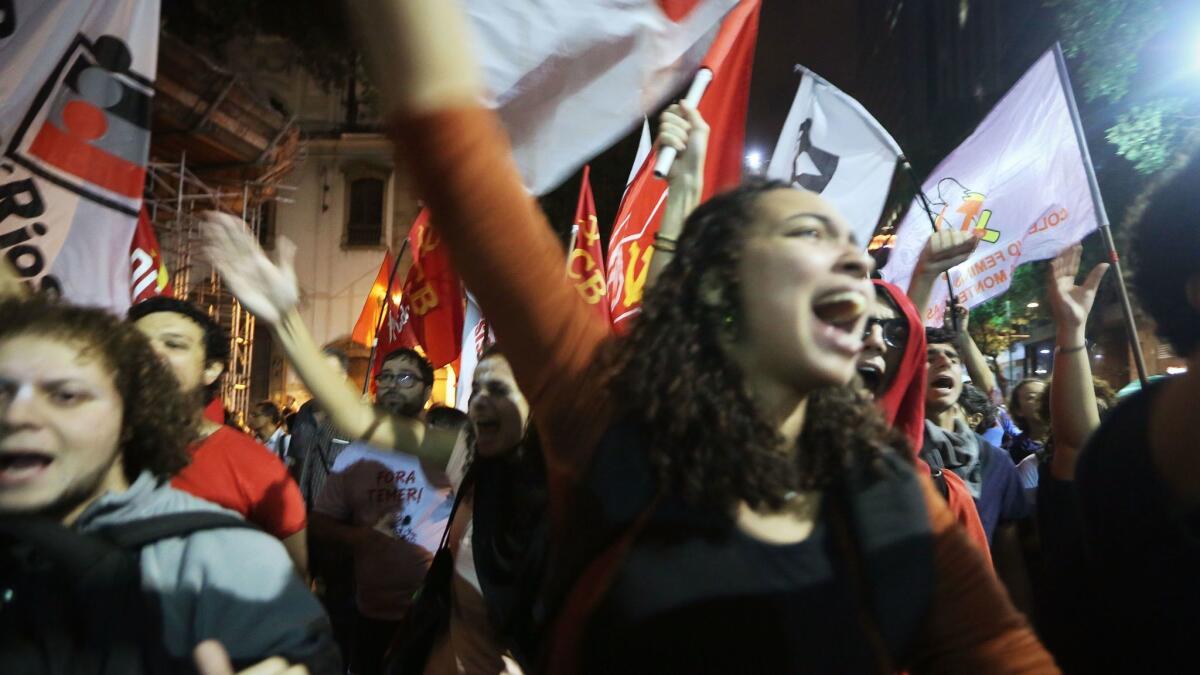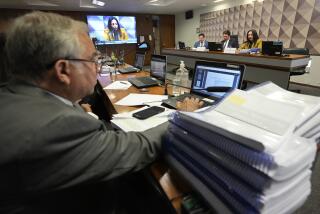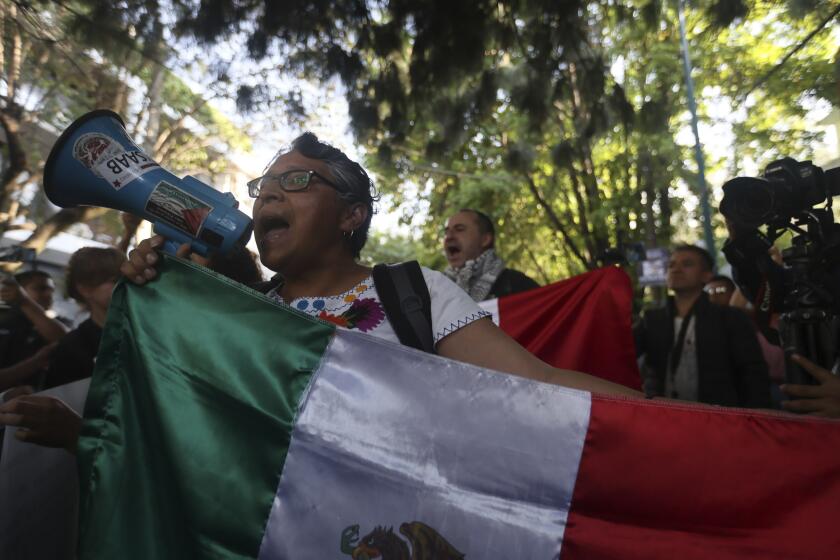Political crisis in Brazil threatens to topple the president, further destabilize the nation

Brazil’s escalating political crisis — compounded by mounting economic woes and new allegations of corruption — is already threatening to end the young presidency of Michel Temer and destabilize Latin America’s largest nation.
“It’s a major crisis of leadership,” said Paulo Sotero, director of the Washington-based Brazil Institute at the Woodrow Wilson International Center for Scholars. “Most think Temer has really lost. The political battle is a really difficult one for him. He’s an unpopular president.”
The latest allegations of impropriety involve claims that Temer endorsed the payment of money to a former senator to “stay quiet” while in jail, according to media accounts. The prominent newspaper O Globo published reports this week of a secret recording of the president authorizing the bribe.
Temer, the former vice president, assumed the presidency in September after the impeachment of Dilma Rousseff. He has denied wrongdoing and vowed to fight to prove his innocence. But on Friday Brazil’s Supreme Court released explosive plea-bargain testimony accusing Temer, along with former presidents Rousseff and Luiz Inacio Lula da Silva, of receiving millions in bribes, Reuters reported.
Protests swept several Brazilian cities following reports of the Temer recording , and opposition leaders called for his resignation or impeachment.

Analysts said Temer’s political demise, though highly possible, might not be imminent. His term ends next year and an impeachment process would take time. Brazilians, having just weathered the lengthy and bitter proceedings that led to Rousseff’s ouster, might not be willing to go through impeachment again so soon.
“It may be easier for the Brazilians to let things go until the 2018 election than to have even more destabilization now,” said Laura Randall, a professor emerita of economics at Hunter College City University of New York and former co-chairwoman of the Columbia University Seminar on Brazil.
Furthermore, some analysts who have listened to the recording said there was room for doubt over whether Temer had explicitly authorized the payment of hush money.
It’s not cut and dried, said Marcos Troyjo, co-director of the BRICLab at Columbia University, a special forum on Brazil, Russia, India and China at School of International and Public Affairs. He listened to the recording and joined other analysts in questioning whether it may have been edited.
If the recording is the main evidence against Temer, “I’m not sure you have enough material there,” Troyjo said. “This is from a legal perspective. From a political perspective it’s a different ball game.”
After just eight months, Temer’s administration has been engulfed in scandal. Dozens of politicians are being investigated for crimes such as corruption and money laundering, including eight ministers, 24 senators and 39 lawmakers in the lower house of Congress. Some of these officials have been implicated in a wide-ranging investigation, code-named “Lava Jato,” or Car Wash, that has implicated scores of officials in possible corruption.
Although Temer is protected by laws that prevent a sitting president from being investigated for acts that occurred before he assumed office, his name has been mentioned in evidence and transcriptions related to investigations into some of his top allies.
The country has grown familiar with government skulduggery leading to political demise.
Rousseff was impeached for breaking budgetary rules by shifting around funds to cover short-term deficits. Her predecessor, Lula, faces corruption charges in connection with alleged bribes from the Brazilian business conglomerate, Odebrecht.
“What we saw in Brazil in recent years was [corruption] not only moving from endemic to epidemic, but from epidemic to systemic,” said Troyjo, the Columbia adjunct professor.
Political chaos has helped aggravate the country’s economic woes.
“The political turmoil is leading to daily uncertainties,” Randall said.
Production has declined, stocks have plunged and the job market is enduring a downward spiral. An economic recession that started in 2014 grew to the worst in the Brazil’s history and has continued into this year. The country’s public expenses are spiraling out of control.
Analysts said Temer’s chances for political survival could hinge on his ability to get Brazil’s economy back on track.
“The past 12 months, one has to admit, whether you like President Temer or not, were a period of significant advances towards what Brazil lost two to three years ago, which was economic stability,” said Troyjo.
Under Temer, Brazil has managed to put inflation back within target and governance in some state-owned enterprises has improved, analysts said. He has introduced structural reforms of social security, labor and the tax systems.
Despite the political and economic uncertainty, several analysts said they were confident that Brazil’s democratic institutions would prevail. The faith lies in the country’s cadre of younger judges and prosecutors “who have been responding to the desire to end impunity,” Sotero said.
Ordinary Brazilians have also shown that they are no longer willing to accept political transgressions. The pushback is evidenced in the recent protests and the the interest and backing of the judiciary as it conducts its probes into political wrongdoing, analysts said.
“This is a major attack on corruption in Brazil,” Sotero said. “We have come a long way. Support in society for these investigations is massive. Brazilians used to know the names of the players on their soccer team; now Brazilians know the names of judges.”
Special correspondent Jill Langlois in Sao Paulo, Brazil, contributed to this report.
For more on global development news, see our Global Development Watch page, and follow me @AMSimmons1 on Twitter
More to Read
Start your day right
Sign up for Essential California for news, features and recommendations from the L.A. Times and beyond in your inbox six days a week.
You may occasionally receive promotional content from the Los Angeles Times.







